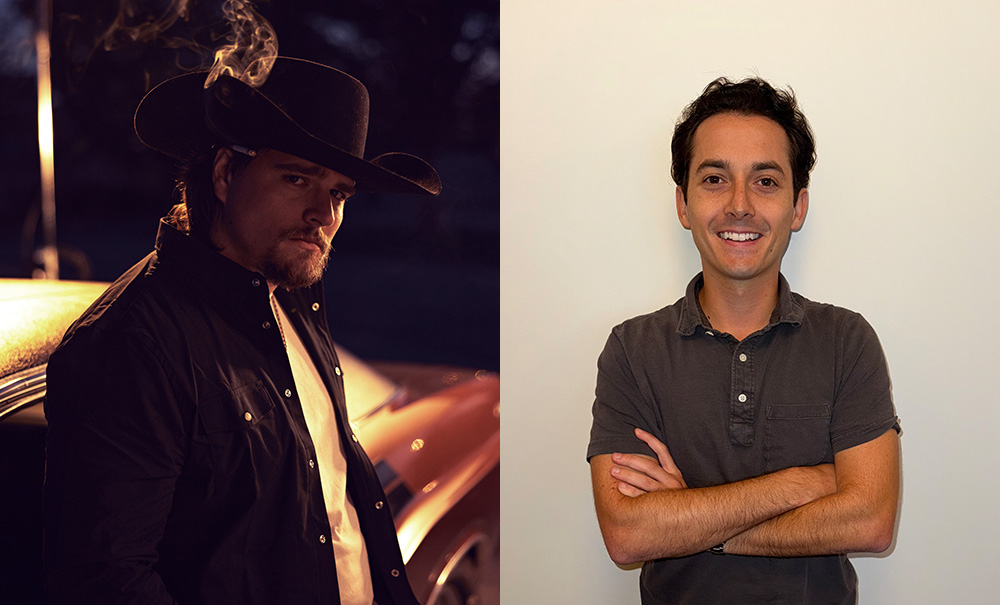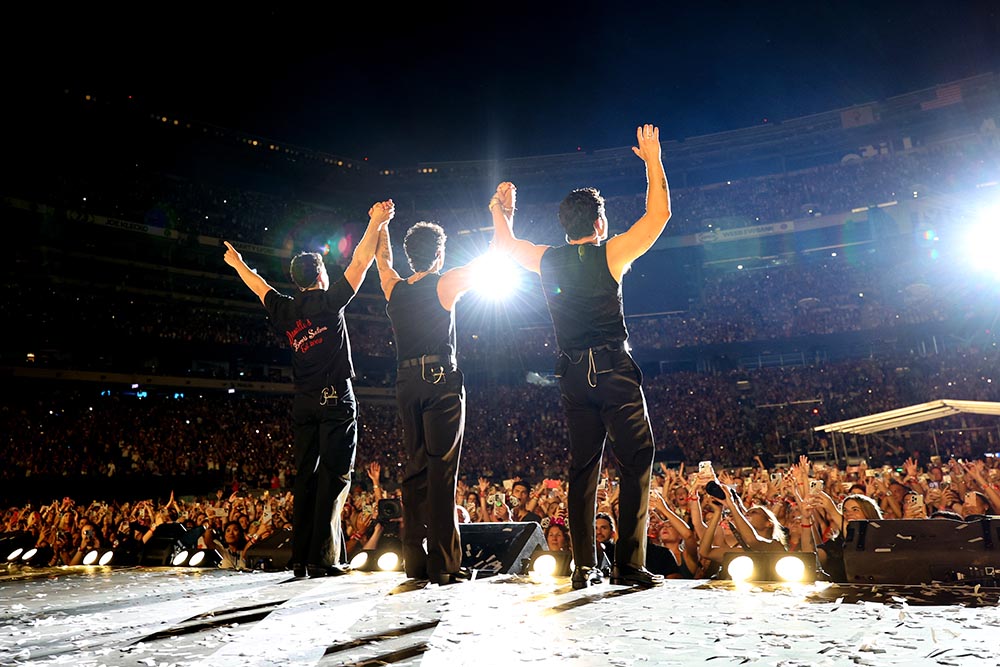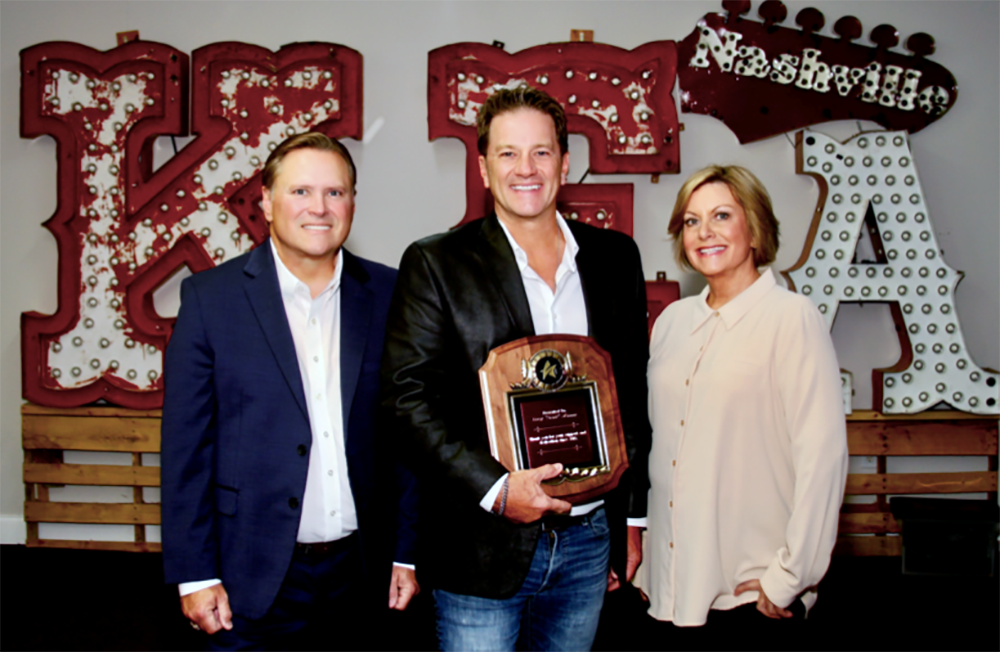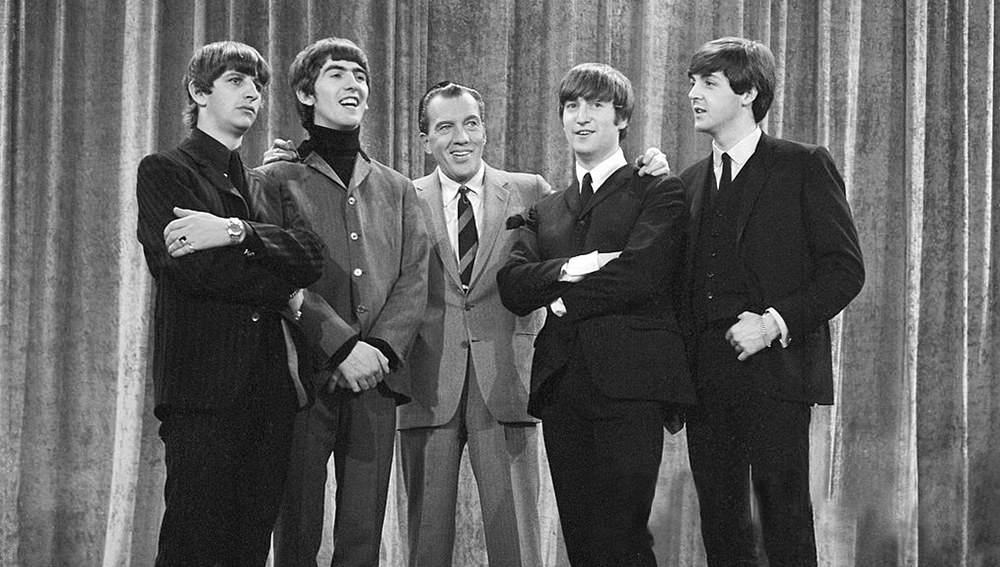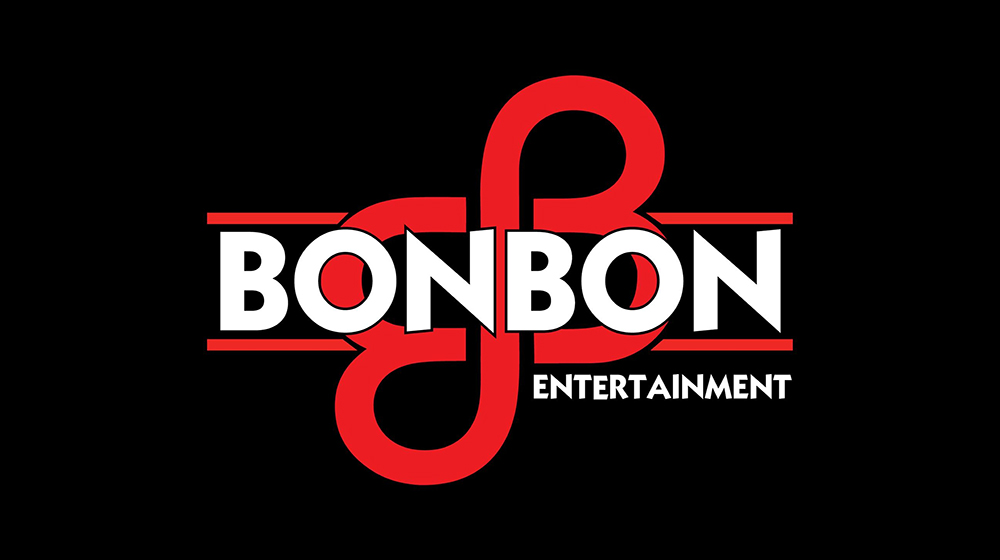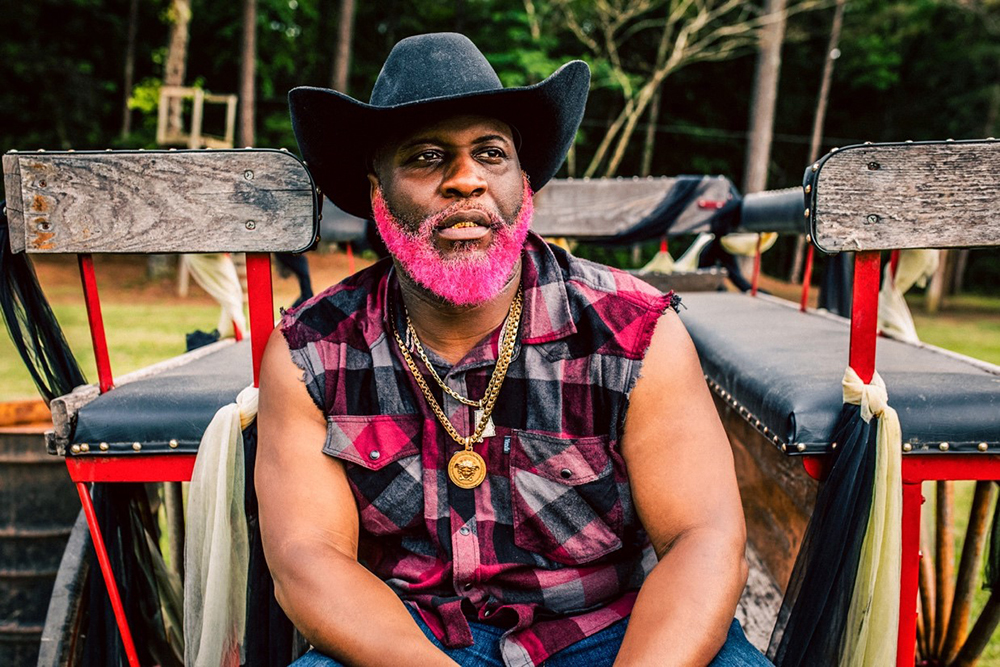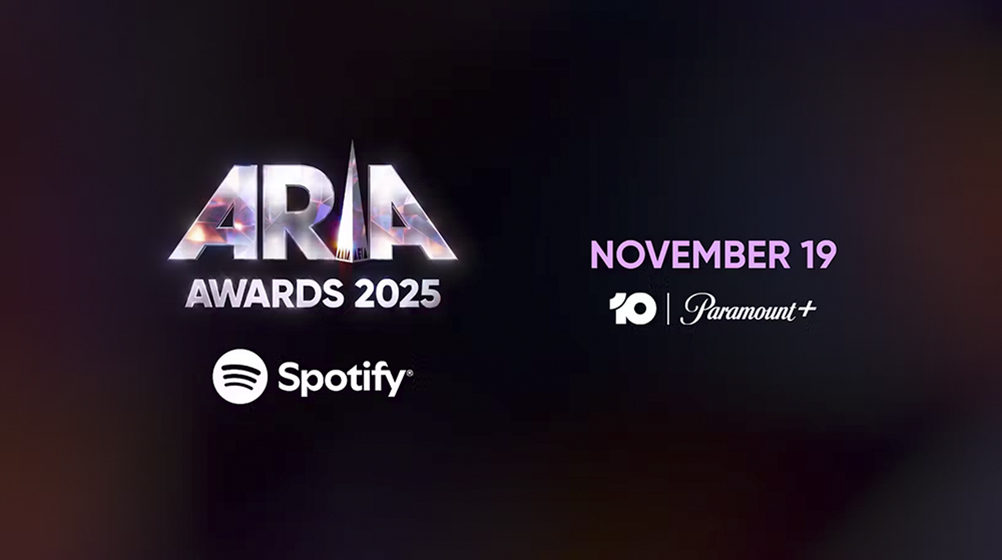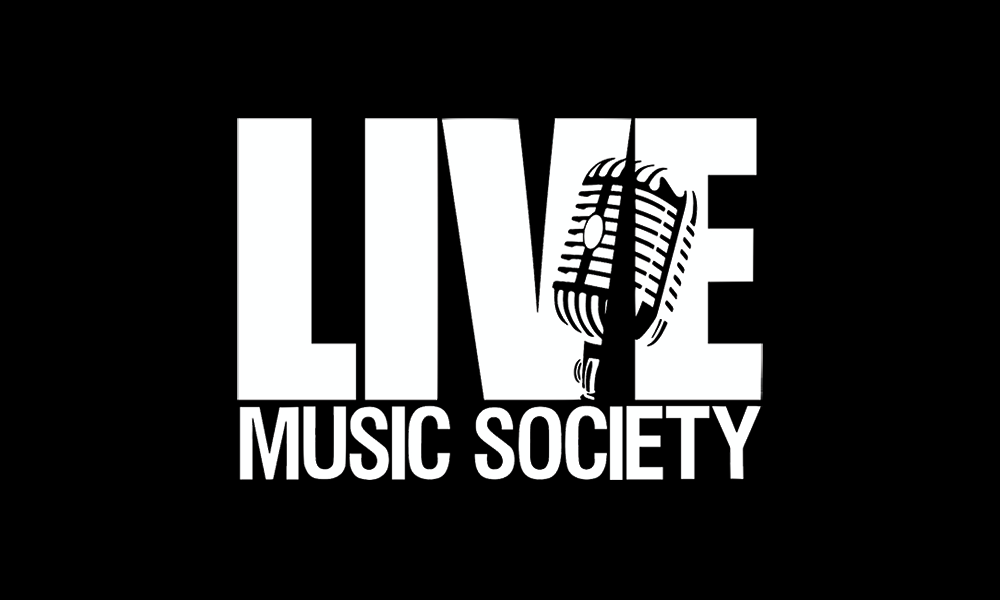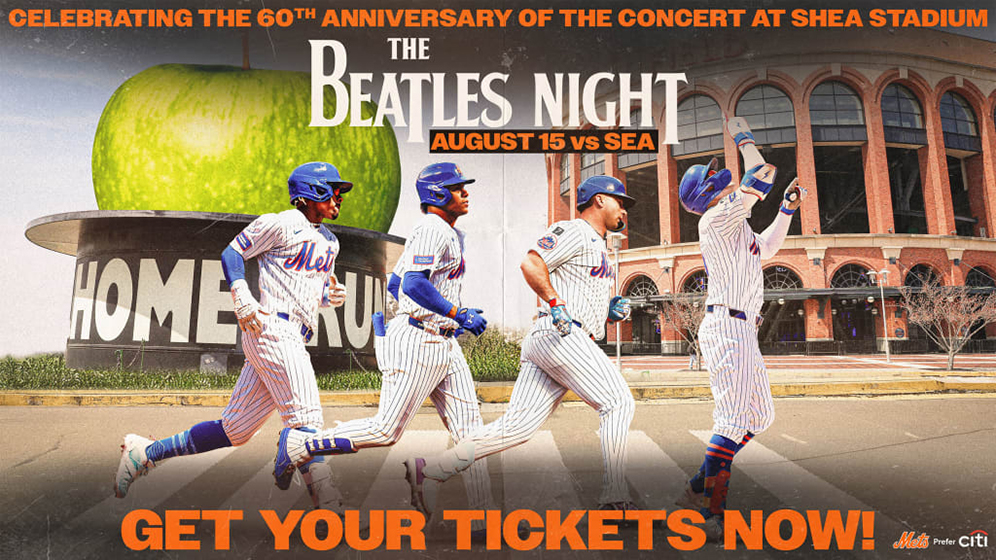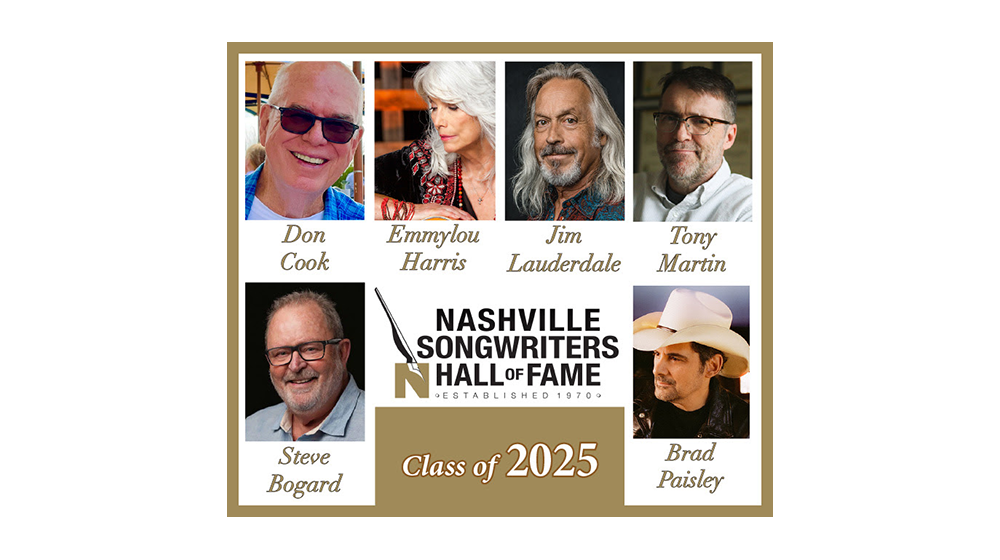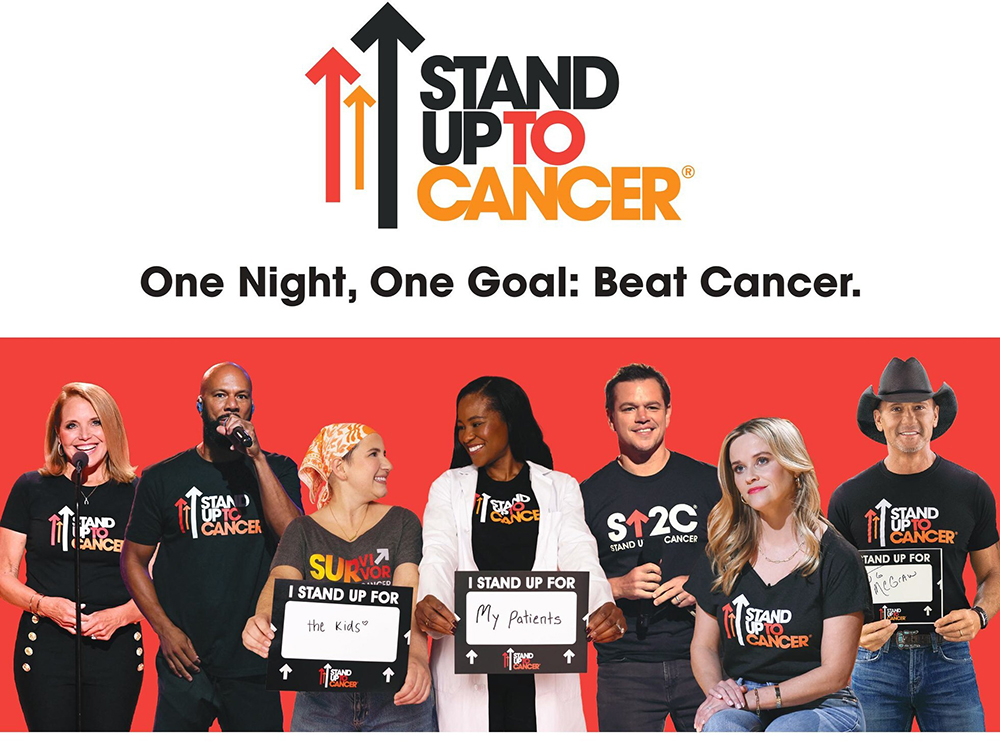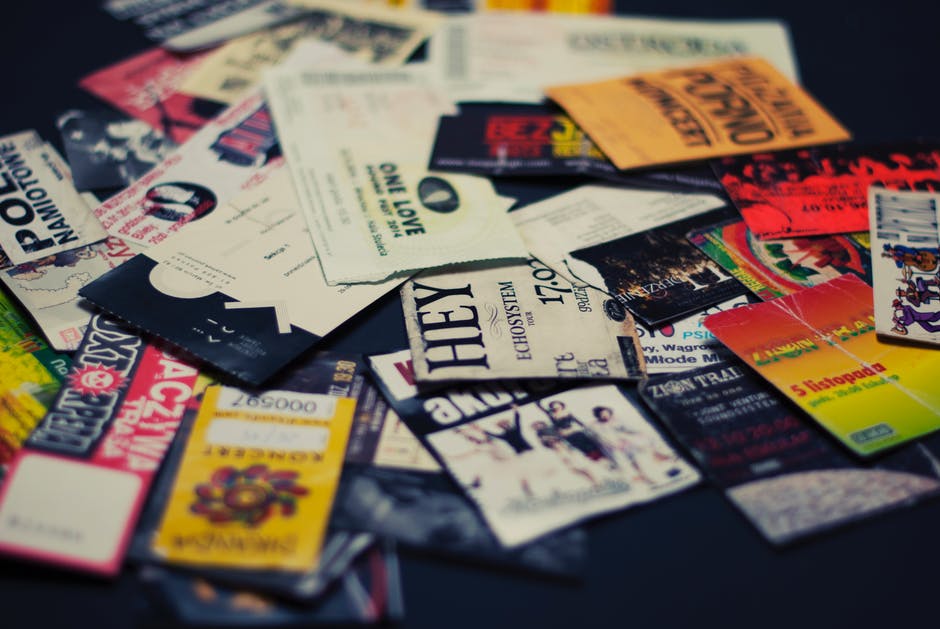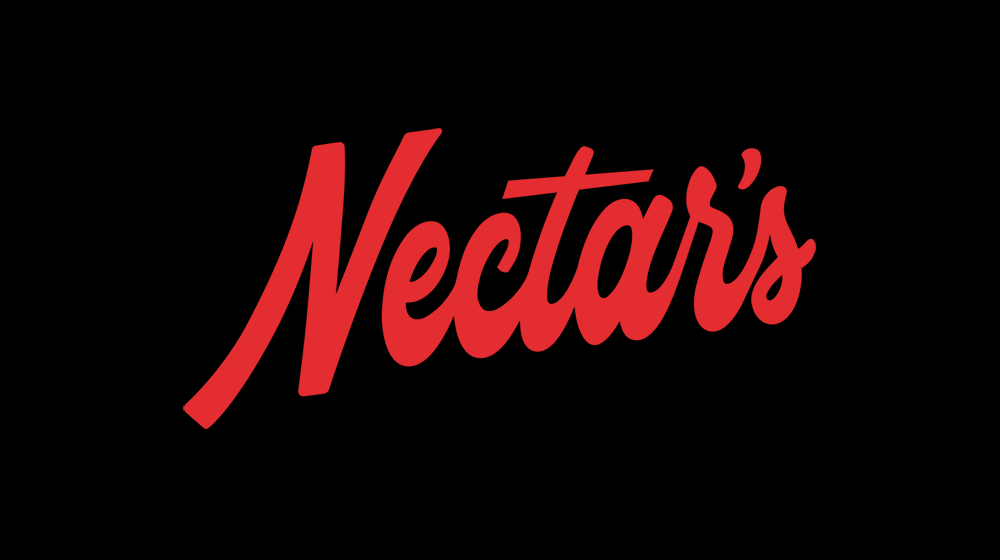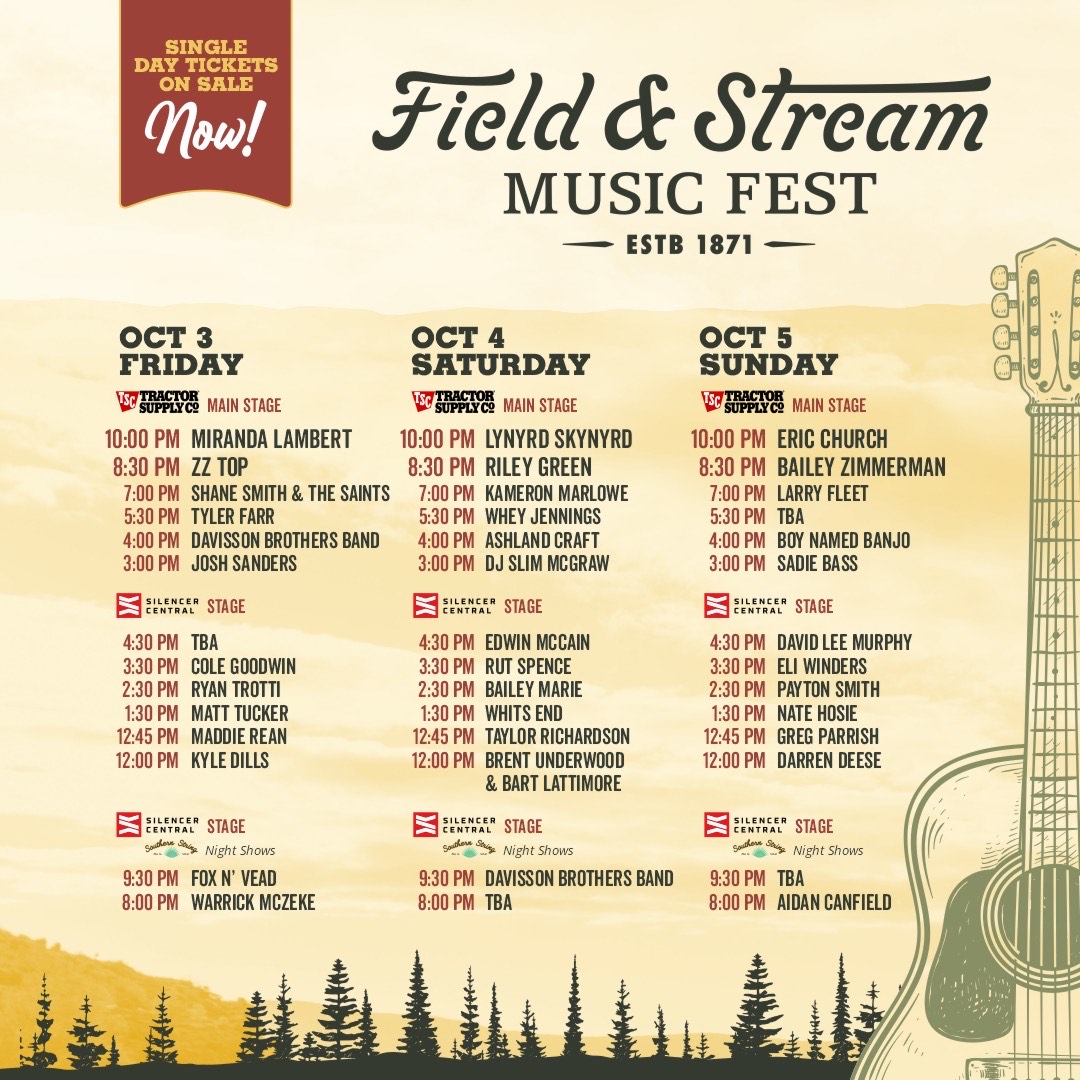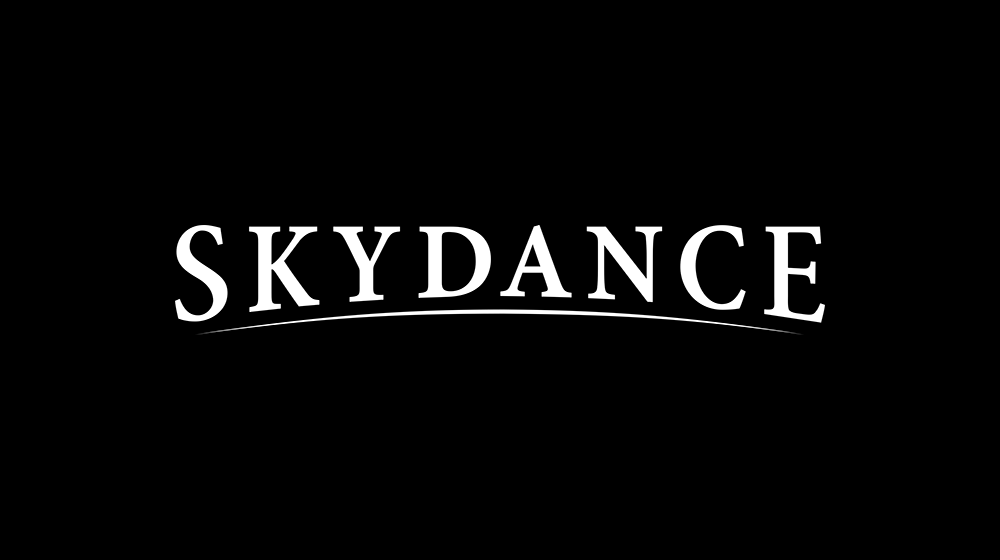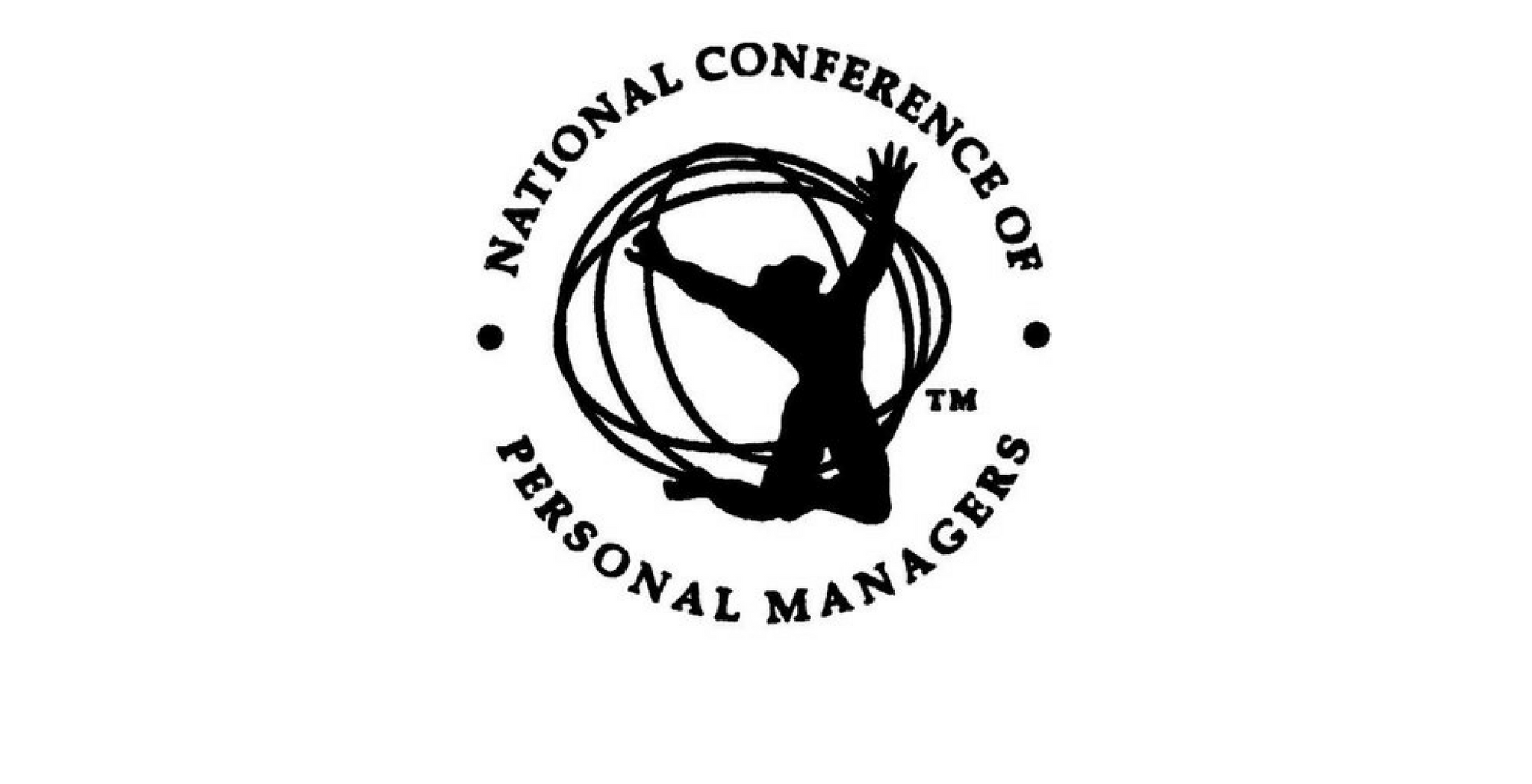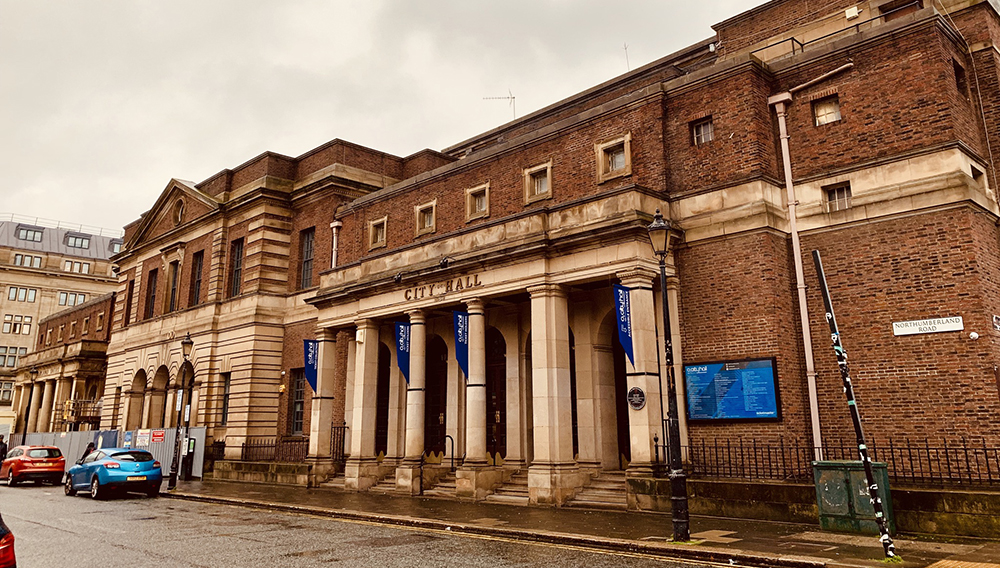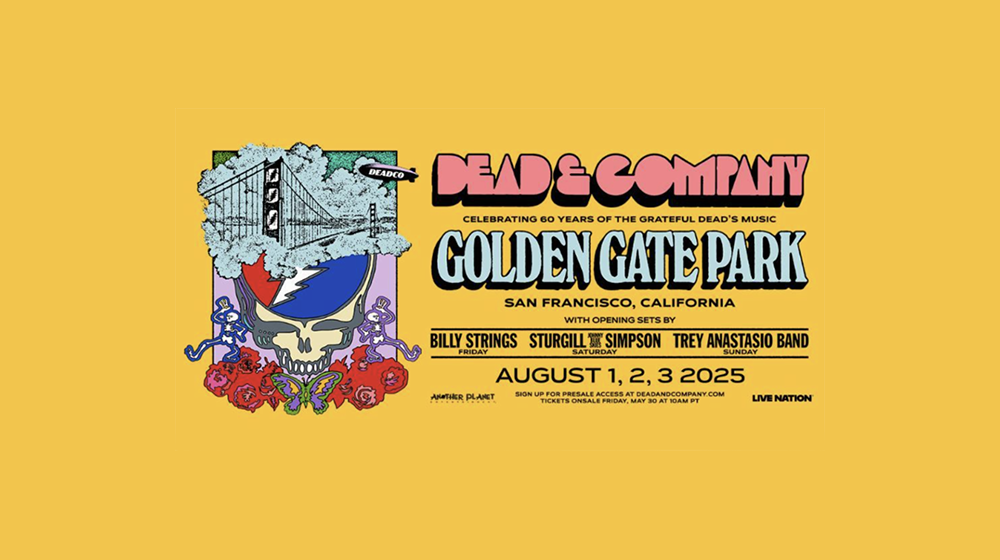
(CelebrityAccess MediaWire) — Former music industry publicist Howard Bloom gave one of the keynote addresses at the Global Entertainment and Media Summit in New York April 2-4. His speech entitled "Putting Soul in the Music: Breathing Life Into the Music Biz" is presented in its entirety:
It’s been a long, long time since I’ve seen a lot of you, and those of you I’ve never met I wish I’d had a chance to meet a long, long time ago. Bear with me, because I’m going to try something I’ve never done before. Instead of improvising, I’m going to read (boo, hiss) a speech. Why? Because I have many too many stories to tell, many too many messages to get across, and the only way to keep myself in check is to write it down and read.
First off, asking me to speak at a music industry affair is a bit like digging a discontinued figure out of the backroom of Madame Tussaud’s Wax Museum. I said good bye to the music and film business in 1988 and haven’t kept up with the industry since then. But sometimes an old wax statue can still be good for something. Use it for candles in a blackout and it can still make some light. The music business is going through a blackout these days, from what I’ve been told. There are problems selling CDs. And the whole industry is in the process of boiling down to just three companies. These sound like rough, rough times. But rough times in pop culture are often times of opportunity.
There was a moment of opportunity like this back in the 1920s. The record industry was big business. It had started up in 1894, shortly after an immigrant to America, Emile Berliner, invented the gramophone in Washington, DC, and also invented the thing it played—a music disk. By 1905, the Victor Company had sold over five million Enrico Caruso records pressed on a brittle plastic, Bakelite. Then came big trouble. I think you’ll see its relevance. In 1922, 600 radio stations were licensed to go on the air. Those were six hundred radio stations that were going to give music away for free. So record companies covered the labels on their records with warnings that any unauthorized use of the disk in your hand—especially use on the air—would bring the wrath of God and the fury of attorneys down on your head. Those warning labels appeared on records for over ten years later. Today, that seems ridiculous. Airplay, at least when I left the business, was something music companies fought for—and sometimes paid to get. The free play on radio generated sales in record stores.
The lesson of that experience? Exposure begets more exposure. And more exposure produces demand. So MP-3 downloading—and even file-swapping–may, in the end, produce more good than harm.
Another lesson on intellectual property. 550 years ago there was a guy who created a machine that literally changed the world’s entire history. It would crank out intellectual property in quantities that defied belief. Everybody who could would use it. But the guy who invented didn’t get paid. In fact, he died in bankruptcy. His name was Johannes Gutenberg. His invention was the printing press. Unfortunately there were no patents in those days.
The lesson of this one is this. Much as I love free stuff, its critical that ASCAP, BMI, the RIAA or any other music industry organizations find a way to keep a balance—a way to avoid strangling the exposure that comes from giving it away, and yet a way that still protects the right to get paid. But, frankly, you didn’t need me to tell you that. I just like to give you tools from the tales of history.
Then there’s the problem of an industry concentrated in the hands of three huge companies. Periods of consolidation are often periods of opportunity for outsiders. Why? Because big companies kill off creativity. They get caught in the imitation trap. They repeat the formula of what worked yesterday. Or they monkey see and monkey do with what just worked for some competitor. But novelty is critical to music. Listeners need the hook, the twitch, the hint of something new.
Corporate lockjaw is the signal to go with your instincts and pounce. Let me give you an example. In 1969, there were roughly 180 record companies with offices in New York. By 1981, that number, for all practical purposes, was down to six. Six major companies controlled roughly 80% of the business. They were about to control 90%. So you’d think that small companies wouldn’t have stood a chance. Not true.
1981 was the year Sylvia Robinson discovered that kids in the South Bronx were making a strange sound, a sound very, very different from the ballads by Air Supply, Hall &Oates, and Lionel Ritchie that were topping the charts that year. Sylvia had an uncanny passion for music. She landed her first record deal when she was fourteen, became a songwriter and producer, made albums under the names of Little Sylvia, Mickey and Sylvia, and just plain Sylvia. She sang with Ike and Tina Turner, wrote and produced hit songs for a string of other artists, and did something very few other women of her time dared—much less black women—she started her own record company. Sylvia ran her label out of a converted dry cleaning store in Englewood, New Jersey. When she heard the new South Bronx street music, she put together a studio band, she named it after her record company—Sugar Hill–then she issued a 12" single of the South Bronx sound. She called it "Rappers’ Delight". And it sold so many copies that Sylvia was able to declare that disk the first platinum 12" single in history.
Sylvia asked me to work with her next project, a real band in the new style—Grandmaster Flash and the Furious Five. Executives at all six major record companies told me that this street music was an abomination and would disappear in six months time. They thought they were closing a door. Instead their narrow-mindedness opened the gate for independents like Tom Silverman’s Tommy Boy Records and Corey Robins’ and Steve Plotnicki’s Profile Records, upstart labels that were able to dominate rap music without significant competition from the majors for the next four years.
It’s 23 years later, and you can see how very right the majors were. Rap has not quite shriveled up and gone away. In fact, if anything, it’s rap that’s now a formula crying out for a change.
The three new majors are going to be as stuck in formula fixation and the imitation trap as the majors were in Sylvia Robinson’s day. So the time has arrived for the passionate to come out and play.
But those messages are not the real reasons I wanted to come out of mothballs—assuming that the moths we study in science have balls–and talk to you tonight. They’re not the reasons I was willing to risk showing you my total and utter ignorance of the current music business.
I wanted to talk to you about some of the lessons that being a guerrilla fighter in the music and film industries taught me. They’re lessons I taught to my clients back in the 1970s and 1980s. They made many of those clients stars.
They’re lessons whose meaning I’ve had a chance to think out now that I’ve gone back to where I came from—science. They’re lessons in what music… and you and I… are really here for. They’re the lessons behind my third book—Soul In the Machine: Reinventing Capitalism—A Quick Re-Vision of Western History, which I’m working on right now. Soul In the Machine is a book aimed at all of Western Civilization and its economic underpinnings. But it owes its meat to the music business.
First, let me give you a little background. I started the Howard Bloom Organization, Ltd., in 1976 on a coffee table in Danny Goldberg’s living room. I was too small and too strange to attract big stars to my client roster. So I had to make stars on my own. In 1976, I had a band that Bob Christgau panned in the Village Voice. He said, "They have a sound like hammered shit." I worked three years to get the critics to respect them. Last week they were initiated into the rock and roll hall of fame. Their name is ZZ Top.
In 1981, I had a nineteen year old who’d just gone platinum with his first LP. Sounds like he should have been easy to break, right? Wrong. He was black and in those days white record company executives were all for civil liberties in principle. But they weren’t for civil liberties in fact. They refused to work with artists who were black. It wasn’t hip. It wasn’t stylish. Progressive FM-radio, which dominated the album scene, felt the same way about music that came from folks with the wrong skin tone. So Bob Cavallo and Steve Fargnoli—the two key members of this singer/composer’s management team–and I fought to get our 19-year-old across the color line. Last week he was named to the rock and roll hall of fame, too. His name is Prince. Then there were two rockers who were about to become two-hit wonders and who needed a radical turnaround. One of them was Billy Idol. The other was John Cougar Mellencamp. There were lots and lots of others.
Some came to The Howard Bloom Organization to achieve stardom. Others came because they’d gotten fame and needed help in taking the next step. They included Bob Marley, Bette Midler, Michael Jackson, Billy Joel, Paul Simon, David Byrne, Peter Gabriel, Run DMC, Queen, and many others who didn’t really need us but came to us anyway—AC/DC, Aerosmith, and Kiss to name a few.
Now down to the messages I really came here to deliver.
Lesson number one. You are not selling cornflakes. You are not selling product or plastic. You are selling human soul. You are selling honesty of a very strange kind, honesty that comes from centers that don’t have normal voices in the human mind. Let me give you an example. Back in the Sixties there was a kid in Phoenix, Arizona, named Vincent Furnier. Vince was a scrawny little thing with a big nose whose mother used to dress him in a suit and tie before she sent him off to school. Vince behaved so perfectly that he always became the teacher's pet. And you know what happens to teachers’ pets.
The other kids hated the way he looked, hated the way he dressed, and hated his perfect behavior. So during recess, they called him "the schnoz" and kicked him around the playground mercilessly.
When he was sixteen, Vince was sitting at his kitchen table. In front of him was a Ouija board piloted by a nice, suburban neighbor who said she had the knack of contacting spirits from a higher plane. Vince was skeptical, but willing to go along and play the game. Sure enough, a spirit showed up and began to get personal. It said it was a 17th century witch who had been burned at the stake, and that Vincent Furnier was its current incarnation. The witch's name was Alice Cooper. That hit a nerve. It touched something buried deep inside of Vince waiting to come alive. It touched a buried self that had more passion than anything Vince had ever known.
So Vince put a rock routine together and went onstage during a school talent show. But he didn’t appear as the well-behaved, scrawny little kid his high school classmates loved to hate. He wore mascara and a dress and chopped up baby dolls. He did it with passion. He did it with fury. He did it with a conviction and a power his classmates had never seen. Why? Because the real him was Alice Cooper!
The mascara-wearing, gender-bending axe murderer inside of Vince had an emotional reality more powerful than the nice kid dressed in suits his mom had pressed. The newly unmasked killer-witch tapped something buried deep in the members of Vince’s audience too. The high school kids who had hated Vince cheered and applauded his act. They went crazy over it. And the jocks, the same athletes who’d kicked him around the schoolyard, came to him begging. They wanted to be members of his band. Ten years later, the lucky former football players who made it as Alice’s bass-players and drummers would be millionaires. All because Vince Furnier had connected with a source of passion buried inside of him.
Vince gave something valuable to society. He helped his audience live out its violence and its anger without hurting a single soul in the world of everyday realities.
That’s why I say that what we're selling in the music business isn't an inanimate "product" like a cornflake. It's raw human emotion. It's a sense of self-validation. It's a chance to make contact with normally hidden parts of the human soul. And it’s the right to feel that even in your weirdness you are not alone.
There’s a self inside of you more passionate and more powerful than the self of everyday life. It’s a self more potent than the self that asks "how are you?" and that answers, "fine, thank you very much. And how are you." That’s the self your artists have to work from. That’s the self you have to work from too.
This is one key to the soul in the machine. Find the secret selves inside of you. Find them in your artists, too.
Lesson number two. Subcultures have souls. When those souls find their voices, champion them for all they’re worth. Music is an emblem of belonging. Artists and their music are badges of identity.
Here are a few stories to give you an idea of what I mean. In 1973, I was asked to start a public and artist relations department for Gulf &Western Industries’ fourteen record companies. Danny Goldberg, who shows up in a lot of these stories, had been there before me, but there was apparently nothing left of his legacy—not his files, not his structure, and not his staff. So I started from scratch. I looked over the roster of fourteen record companies, quickly discovered that twelve were hopeless, and focused on two companies that had a work ethic, passion, and intelligence. One was Seymour Stein and Richard Gottehrer’s Sire Records. The other was a company down in Nashville called Dot.
Dot was the number three record company in country music. It was fighting like blazes to be number one. God, I admired the smarts and the conviction with which it was laying siege to the charts and was building its artists doggedly. So I went down to Nashville quite a bit and discovered something. I’d never been a country music lover. Not at all. I hated the stuff. But I loved the people. I loved the artists. And they were being locked in a ghetto just as if a wall had been built around the Bible belt.
Jim Foglesong, the president of dot records, had a vision. He called it country-politan. So did Jim Halsey, the manager for most of Dot’s key acts. Jim wanted to make country big in New York and London. So I worked my ass off to get Dot’s artists into major national publications—especially a new one called People Magazine. And, indeed, I got a lot of them in. Sales grew and we got a budget to start a Nashville PR office, the first record company in-house pr office in the capital of country music. That was the beginning of country crossover. And country crossover gave identity and consolation in spoonfuls, heaps, and beer mugs to men and women all over the world.
Let me repeat. Lesson number two is this– subcultures have souls. When those souls find their voices, champion them for all they’re worth. In a now long gone and distant time there were two very passionate guys in the record industry—room-mates—Ray Caviano and Bob Small. Both of them were kamikazes for their work. Bob Small worked with ZZ Top. Ray Caviano worked with a bunch of British acts on Sire Records. Both liked to take on difficult causes. So I loved pitching in with them. One summer Sunday afternoon, Ray Caviano called me from Fire Island, where he spent his summer weekends. He knew I worked like a maniac on Sundays and didn’t like interruptions.
He also knew that Monday was a sacred day at my company, the day when I brought each account executive into my office and went over every campaign to see what we’d achieved, what we needed to do next, and how what we were doing fit into the larger plan to build an artist to the next level and beyond. So it was a little strange when he said, "I know about your meetings. I know about your Mondays. But I have to see you at 10:30 tomorrow morning. You have to be at my apartment the minute I get in from the seaplane." Ray twisted my arm until it came out of its socket, not an easy thing to do on the telephone, and I gave in.
Here’s what Ray needed to tell me. There was a new electronic dance music trickling in from Europe. Ray had been taking it out to Fire Island every weekend. DJ’s had put it on the turntables. And folks had been going crazy dancing to it. But not just any folks. There was a silent community in New York City that congregated on Fire Island and came out in the shadows of the night. It was the gay community. Those were the days when you did not tell your boss or your friends or your wife or your kids that you were gay. Those were the days when teens who wanted to show how tough they could be got together, brought along their baseball bats, jumped into a car, and went out looking for a gay man they could beat. It was called "gay bashing". Those were the days when a bar that catered to gay men could be raided, closed, and see its customers arrested simply for having an illegal sexual preference.
The euro-dance music Ray carried out on his weekend treks worked a strange magic on the gay community hidden away at Fire Island. It did something very tribal. Something music has a unique power to do. It welded a sense of community. It energized a need to say, "no more". It energized a spirit of rebellion and a spirit of identity. It did what national anthems do—it drew folks together in a new solidarity. Thanks to this new music, a subculture found its voice and was ready to scream, "I’m me and I have a right to be. What’s more I’m proud of who I am."
Then Ray told me he was gay—which came as a shock. He’d been one of my best friends in the music business for years and I didn’t have a clue.
Ray was ready to lead the gay revolution. And he wanted me to lead it with him. The fact that I was straight didn’t matter one bit. And, frankly, it didn’t matter to me either. Yes, I was embarrassed as all hell when Ray gave me the names of 20 cheaply-printed gay magazines and made me go out to the newsstands on 57th Street and hunt them down. And, yes, I was amazed at the way my all-female staff went nuts over the pictures of men with oversized schlongs slapped across the pages.
But here’s the bottom line. Gay men had a right to be free. The club scene in the West Village grew from those Fire Island scenes. In those clubs, gay men would gather to be outrageous and to dare the police. Egged on by the music, they’d live out their macho fantasies. Some would dress as cowboys, some as Indians, some as construction men. They worked out, went to tanning salons, oiled their biceps and their triceps and showed them off. Two gay friends of Ray’s who barely spoke English flew in regularly from Paris, dropped into my office, went wild in the clubs, then put together a group based on those macho fantasies. It was the Village People. And when Middle America heard their hit, "Macho Man," few had a clue about what it really meant.
The music that set the gay community free was disco and it was popular to hate it. But it shaped the seventies. And it left a legacy. Disco and rap are the two musical forms from 20 and 30 years ago that are still on radios wherever you go today.
But let me repeat the point. Disco was the rallying cry of a subculture, a tribe within a tribe. It was the voice of a people straining to be free. So was country music when I worked to help it break out of its ghetto in the Bible Belt in the 1970s. So was the music of ZZ Top when the band built a stage in the shape of the state of Texas, had four touring-equipment trailer trucks painted with a continuous tableau of the Texas countryside, rounded up a turkey vulture, a buffalo, a long-horn steer, and two rattle-snakes, prepared to take them on a 50-city tour, told me tales of Texas history and revealed a Texas view of the world that Texans never confess to outsiders. Then ZZ Top had the Mayor of Houston name me the Ambassador of Texas Culture to the World. Texas, too, had a secret culture needing to be set free. It had a soul that needed validation and identity.
Punk music was another cry of freedom for a bunch of kids who didn’t yet know they were a community. It became that when Miles Copeland founded a management firm and a record company, IRS. His brother Ian Copeland founded a booking agency, FBI. And their brother Stewart Copeland founded the band his two brothers helped establish, the Police.
The Copelands set up a new North American touring circuit for the Police. They bypassed the promoters who monopolized each city. They went to kids who’d learned to promote concerts in college, then sent them out to find empty venues in their cities. That’s how they started a following for the Police long before the record company took the band seriously. They fed their rebel circuit of promoters by sending them every punk band Ian could sign to his booking agency. That’s what put punk music on the map. That’s what gave kids who felt out of place and strange a sense of solidarity. And the Copelands let me come along for the ride, acting as the spokesman for the Copeland family.
Music lets all of us come out of the closet and find our common identity–whether we’re urban kids who feel like outsiders, suburban kids who’ve battling for a position on the inside, or mid-western kids who feel unrecognized by the tastemakers in New York and LA. Even Britney Spears and Justin Timberlake give a sense of identity to someone–to kids whose world is mall culture and normalcy. Those kids too have a right to earn your passion. They have a right to be.
When you see the soul of a subculture congealing, help it find its freedom. When you see the passion of a secret self like Vince Furnier’s catch fire, fan the flame of his Alice Cooper. Go for it with all your energy and belief. Find that place inside of you that resonates to its frequency. Let the cry for freedom catch hold of you. Burn with its fire. Crusade for it. Even if you can feel it but not quite express exactly what it means.
Those are the two major lessons I wanted to bring to you tonight. Capitalism is not what it seems. Nor is the music industry. Soul is the name of the game even if you are selling shoes or makeup. Capitalism as at heart an emotional exchange. Take your emotions to work with you. They’re your most important tools. Gather up your passions and crusade. Crusade on behalf of the secret selves inside of you. Crusade on behalf of others too. Never give up. Never give in. Battle for what you believe in and you will win.
–Bob Grossweiner and Jane Cohen





















